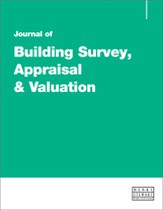Energy surveys and audits: The need for best practice
Abstract
EU Directive 2011/0172 is about to become finalised in European law and mandates energy audits for organisations. As yet it is not clear how the UK government will implement this and over what timeline. The directive states that where energy audits are generally not offered commercially (such as small and medium-sized enterprises), Member States should develop programmes to encourage SMEs to undertake their own energy audits. Energy audits should be mandatory and regular for large enterprises, as energy savings can be significant. Audits should take into account relevant European or International Standards, such as ISO 50001:2011 (Energy Management Systems), or BS EN 16247-1:2012 (Energy Audits — Part 1: General requirements).BS EN 16247-1:2012 (Energy Audits — Part 1: General requirements), has just been published but has insufficient underpinning guidance to enable good quality audits to be specified. Andy Lewry has just published a signposting booklet,1 with the Energy Services and Technology Association, to provide underpinning guidance on how to achieve the requirements. Conducting an energy audit is essential in that it provides the data and information required for informed decision-making.
The full article is available to subscribers to the journal.
Author's Biography
Andy Lewry DIC, CEng, CSci, FIMMM, CEnv, MSocEnv, FEMA has 19 years’ varied technical, marketing and management experience within the carbon and energy management industry, preceded by a further 10 years’ similar experience within various parts of the environmental and construction sectors. Andy is a chartered engineer and a Fellow of both the Institute of Materials (IOM3) and the Energy Managers’ Association, as well as a Prince 2 qualified project manager. He is currently the principal technical consultant for the BREEAM Existing Buildings Team in BRE Global. Andy has authored and published best practice publications on energy management, energy audits, building control and building energy management systems. Recently he produced guidance on ‘Bridging the performance gap: Understanding predicted and actual energy use of buildings’, Journal of Building Survey, Appraisal & Valuation, Vol. 3, No. 4, and ‘Producing the business case for investment in energy efficiency’, Journal of Building Survey, Appraisal & Valuation, Vol. 4, No. 1. He was also part of the UK Green Building Council’s task group that produced the ‘Delivering Building Performance’ report on 11th May, 2016, which lays out the success factors and steps required to tackle the gap between building design and building performance.
Citation
Lewry, Andy (2014, January 1). Energy surveys and audits: The need for best practice. In the Journal of Building Survey, Appraisal & Valuation, Volume 2, Issue 4. https://doi.org/10.69554/HGAC6825.Publications LLP
